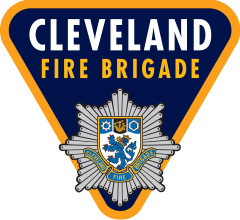As the cost-of-living soars across the UK, Cleveland Fire Brigade are reminding residents to take extra care to protect themselves from accidental fires and carbon monoxide poisoning when heating their home this winter.

The advice comes following the NFCC’s ‘Stay Fire Safe’ campaign, which has been launched today in response to the cost-of-living crisis hitting a record high and people looking at unconventional and potentially dangerous ways of heating and lighting their homes.
Cleveland Fire Brigade is supporting the NFCC’s ‘Stay Fire Safe’ campaign which will provide advice and support to the public to help reduce the risk of fire in the home.
Robin Turnbull, Area Manager, Prevention, Protection and Engagement, said: “With the rise of the cost of living, we are anticipating an increase in accidental dwelling fires this winter, as a direct result of people using unfamiliar methods to stay warm to reduce their energy costs.
We understand that many people are going to be struggling to stay warm during the colder months but want to stress that some of these cost-cutting heating and lighting methods can be incredibly dangerous and WILL increase the risk of fires in the home, which could potentially prove fatal or cause significant injuries.
It’s really important our communities cope safely with the rise in cost of living and don’t put themselves or loved ones at risk. We can provide advice on reducing the risk of a devastating accidental fire and will be working to support our community to help keep them safe.”
It’s crucial people ensure they have working smoke alarms – at least one on each level of the home. Where you have a heating appliance that doesn’t run off electricity, we recommend installing a carbon monoxide alarm – it’s the only way to detect this harmful, colourless, odourless gas which can be fatal. Check alarms are working by pushing the test button at least once a month.
It’s important that where people are able to only heat one room and are using that for both living and sleeping, they can clearly hear alarms so they can be alerted to a fire or dangerous levels of carbon monoxide when asleep.
Changes to regulations now mean landlords must fit smoke alarms in all homes and carbon monoxide alarms where there is fixed combustion heating appliance in rented accommodation. We advise tenants to ensure their landlord is complying to help keep them safe.
As part of the campaign Cleveland Fire Brigade are encouraging people to complete a home fire safety check. The check will provide personalised fire safety advice and tips on how to keep you and your family safe from fire this winter. The online tool can be accessed here. For those most at risk of fire we can also arrange visits to the home to provide help and advice, as well as provide smoke alarms if required.
The ongoing campaign will also share advice on heating and appliance safety, candles and electrical safety.
To help keep you safe
- Check any heating appliances are in good working order and not subject to a product recall by checking the Office for Product Safety and Standards website for any alerts or recalls
- Ensure flammable items such as furniture and drying clothes are placed well away from heaters and fires
- Ensure you use the correct fuel for woodburning stoves and open fires – to reduce the risk of toxic fumes, chimney fires and carbon monoxide poisoning
- Check your escape routes, make sure they are clear from clutter and items such as portable heaters are not blocking them
- If possible don’t skip servicing of boilers and gas appliances by a Gas Safe engineer to prevent gas leaks and CO poisoning. Landlords must arrange for an annual gas safety check in rented accommodation. If you’re a homeowner check your energy provider’s website for information about their Priority Services Register – if you’re eligible they often offer a free annual gas safety check along with other support
For more information about the ‘Stay Fire Safe’ campaign visit https://www.clevelandfire.gov.uk/cost-of-living-crisis/.




